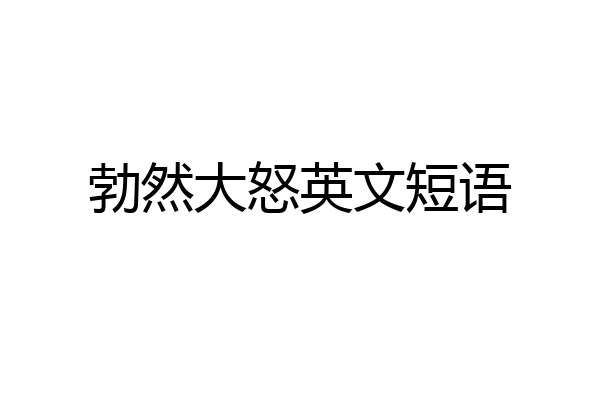
小琳仔仔
up adv.向高处,向上The little boy picked up a stone and bunged it over the fence into the courtyard of his neighbour. 小男孩捡起一块石子扔过栅栏抛到他邻居的院子里。Hands up! 举起手来!在上方,在高处站在;坐在;站起Stand up so that I can see how tall you are. 你站起来好让我能看看你有多高。离开表面The dog jumped up. 狗跳了起来。从下面到表面to come up for air 气泡冒出水面完毕The money's all used up. 钱都花光了。The boy ate up all his dinner. 这个男孩吃光了所有的饭菜。分成小部分to tear up the newspaper 把报纸撕碎吐出在北方;向北方到重要地区;到城市up to London 到伦敦去到较高的地点到说话人这边来up to me 到我这边来捆好;盖紧;拧好to tie up 捆好to nail up the door 把门钉好(价格、质量)上涨,提高The price is going up. 价格上涨。(使活动)增强Please turn the radio up. 请把收音机声音开大 一些。集合起来Add up the figures. 把这些数字加起来。达到更佳的状态Cheer up, old boy! 振作起来,好朋友!come up in the world 崭露头角朝上He turned up his collar. 他把领子翻起来。词性变化prep.到高处;在高处He climbed up the hill. 他爬上山。The boy climbed up the tree. 这个男孩爬上树。The village is high up in the hills. 这个村庄在小山高处。溯(流)to go up river 沿河而上词性变化adj.在上面的,在高处的Now he has realized that he's already up to his ears in debt. 现在他认识到他已经债台高筑。The boss is up to the eyes in work. 老板的工作忙得不可开交。high up in the mountains 在山的高处起床的to get up 起床no one is up 没有人起床上行的;向上的the up train 上行的列车the up stairs 上楼的楼梯在更高的水平上的The temperature is up today. 今天气温上升了。终结的;完了的Time's up. 时间到了。路面破损的,正在整修中的(道路)被控告的had up for stealing 被控偷窃词性变化vi., vt.-pp-提高;抬高;增加to up the price of petrol 提高石油价格突然站起;突然跳起She upped and left. 她突然起身走了。常用词组up to(数目)到…之多up to 100 men 可达一百人直到(某个高级职务)Everyone works, from the lift boy up to the President. 从电梯工人到总经理人人都工作。一直到 (= up till)Up to now, Mr scott has sent a great many requests for spare parts and other urgent messages from one garage to the other. 到目前为止,斯科特先生从一个汽车修理部向另一个汽车修理部发送了大量索取备件的信件和其他紧急函件。胜任Michael's not really up to that job. 迈克尔确实不胜任那项工作。常用词组up to date现代的;最新的It was a modern factory - everything was really up to date. 这是一个现代化的工厂——一切都是最新式的。I like wearing up-to-date clothes. 我喜欢穿时新的衣服。I keep up to date with the news by listening to radio. 我通过听收音机了解最新消息。包括最新资料的习惯用语Up (with) …起来;…上来Up the workers! 工人们起来!习惯用语up and down来回;上下His eyes moved up and down the rows. 他的眼睛对着一排排人转来转去。Window cleaners are pulled up and down tall buidings on cradles. 高层建筑的擦窗工人在工作平台上被吊上吊下。^ Up yours!去你的!习惯用语be up 发生;出事be well up in 对…知道得很多;很熟悉 (= be well up on)not up 〈网球〉在地上反弹了一次以上才被击中的up for 打算;准备The house is up for sale. 房子准备出售。习惯用语be up to 做(坏事)What in the world are you up to? 你到底在搞什么鬼?(= get up to) 简明英汉词典up adv.向上, 到(较高的地方,北方), 起来, 起床prep.向上, 在上, 沿adj.向上的, 上行的


花轮小丸子
常见的up相关的词组有:
1、give up on:对…绝望;对…不抱希望。例句:He urged them not to give up on peace efforts.他力劝他们不要放弃对和平的努力。
2、end up:最终成为;最后处于。例句:If you go on like this you'll end up in prison.如果你继续这样,早晚得进监狱。
3、Live up to:不辜负…期望。例句:The boy lived up to all his parents' expectations.这个男孩没有辜负父母对他的期望。
4、sign up for:报名(参加课程)。例句:Can I sign up for this course in advance?我能事先申请上这一课程吗?
5、Stand up for:维护。例句:The Blackwater chairman stood up for his guards in the hearing.黑水公司总裁在听证会上替公司的雇员说话。
6、Choke up:心情激动,一时说不出话来。例句:He choked up and could not finish the sentence.他话讲到一半就激动得说不下去了。
7、Talk up:Talk是讲话, talk-up是大声讲,或是大胆地讲,也有宣传,宣扬的意思。例句:Talk up and the school will help you.大胆讲, 学校会帮助你的。
扩展资料:
1、up的基本含义是“起来,向上”,例如:get up:起床、hang up:挂起来,挂断电话;keep up with:跟上,不落后;
2、up常用来加强语气,暗含“完全,彻底”之意,例如:clean up:清除、clear up:澄清,放晴、dress up:盛装;
3、up无实际意义,仅起加强语气作用也很常见,例如:back(支持)up:支持,支援、back(倒退)up:倒退,倒车、be mixed up:糊涂,混合;
4、up常和动词搭配表示“碎裂,分开”,例如:break up:分裂,打碎、chew up:嚼碎、tear up:撕碎,取消。
参考资料来源:百度百科-UP (英文词汇)

大果果就是我
upKK: []DJ: []ad.1. 向上,往上;向楼上They hung the map up.他们把地图挂起来。2. 在上面;在楼上She lives two floors up.她住在再往上两层。3. (价格、水平等)上升,上扬Prices for consumer goods are going up.消费品价格在上涨。4. (姿态)直立地;起床;起来5. 在北方;向北方He drove up north.他驾车向北驶去。6. 向前;靠近He came up to me and asked my name.他走到我面前,问我叫什么名字。7. (程度)增加,增大Speak up so that everybody can hear you.讲得响些,让大家都能听见。8. 彻底地,完全地To my surprise, she drank up the whole bottle of wine.使我惊奇的是她把一瓶酒全喝了。9. 紧紧地prep.1. 向...上,往...上2. 在...之上Her room is up those stairs.她的房间在那边楼上。3. 向...的上游;沿着She walked up the path.她沿着小路走。4. 【英】【口】到;在a.[Z]1. 向上的;上行的[B]The chart shows an up trend of meat prices.图表显示肉价呈上升趋势。2. (道路)在整修的[F]3. (电脑)在工作的[F]4. 被控告的,上法庭的[F]He was up for slander.他被控犯有诽谤罪而出庭。n.[C]1. 上升;向上的坡2. 上行车3. 走运;繁荣I hope I'll have more ups in the future.我希望将来走运些。vt.【口】1. 提高;增加The price of sugar has been upped.糖价已经提高。2. 举起;拿起vi.1. 【口】(后接and和另一动词)突然站起She upped and slapped him in the face.她霍地跳起来打了他一记耳光。

美味偏执狂
英语不懂这些会很丢脸的:1、日常用语类 lover 情人(不是“爱人”) busboy 餐馆勤杂工(不是“公汽售票员”) busybody 爱管闲事的人(不是“大忙人”) dry goods (美)纺织品;(英)谷物(不是“干货”) heartman 换心人(不是“有心人”) mad doctor 精神病科医生(不是“发疯的医生”) eleventh hour 最后时刻(不是“十一点”) blind date (由第三者安排的)男女初次会面(并非“盲目约会”或“瞎约会”) dead president 美钞(上印有总统头像)(并非“死了的总统”) personal remark 人身攻击(不是“个人评论”) sweet water 淡水(不是“糖水”或“甜水”) confidence man 骗子(不是“信得过的人”) criminal lawyer 刑事律师(不是“犯罪的律师”) service station 加油站(不是“服务站”) rest room 厕所(不是“休息室”)化 dressing room化妆室(不是“试衣室”或“更衣室”) sporting house 妓院(不是“体育室”) horse sense 常识(不是“马的感觉”) capital idea 好主意(不是“资本主义思想”) familiar talk 庸俗的交谈(不是“熟悉的谈话”) black tea 红茶(不是“黑茶”) black art 妖术(不是“黑色艺术”) black stranger 完全陌生的人(不是“陌生的黑人”) white coal (作动力来源用的)水(不是“白煤”) white man 忠实可靠的人(不是“皮肤白的人”) yellow book 黄皮书(法国政府报告书,以黄纸为封)(不是“黄色书籍”) red tape 官僚习气(不是“红色带子”) green hand 新手(不是“绿手”) blue stocking 女学者、女才子(不是“蓝色长统袜”) China policy 对华政策(不是“中国政策”) Chinese dragon 麒麟(不是“中国龙”) American beauty 红蔷薇(不是“美国美女”) English disease 软骨病(不是“英国病”) Indian summer 愉快宁静的晚年(不是“印度的夏日”) Greek gift 害人的礼品(不是“希腊礼物”) Spanish athlete 吹牛的人(不是“西班牙运动员”) French chalk 滑石粉(不是“法国粉笔”)an apple of love,是常见的 西红柿,不是“爱情之果”2.成语类 pull one's leg 开玩笑(不是“拉后腿”) in one's birthday suit 赤身裸体(不是“穿着生日礼服”) eat one's words 收回前言(不是“食言”) an apple of love 西红柿(不是“爱情之果”) handwriting on the wall 不祥之兆(不是“大字报”) bring down the house 博得全场喝彩(不是“推倒房子”) have a fit 勃然大怒(不是“试穿”) make one's hair stand on end 令人毛骨悚然—恐惧(不是“令人发指——气愤”) be taken in 受骗,上当(不是“被接纳”) think a great deal of oneself 高看或看重自己(不是“为自己想得很多”) pull up one's socks 鼓起勇气(不是“提上袜子”) have the heart to do (用于否定句)忍心做……不是“有心做”或“有意做”)3.表达方式类 Look out! 当心!(不是“向外看”) What a shame! 多可惜!真遗憾!(不是“多可耻”) You don't say! 是吗!(不是“你别说”) You can say that again! 说得好!(不是“你可以再说一遍”) I haven't slept better. 我睡得好极了。(不是“我从未睡过好觉”) You can't be too careful in your work. 你工作越仔细越好。(不是“你 工作不能太仔细”) It has been 4 years since I smoked. 我戒烟4年了。(不是“我抽烟4 年了”) All his friends did not turn up. 他的朋友没全到。(不是“他的朋友全没到”) People will be long forgetting her. 人们在很长时间内会记住她的。(不是“人们会永远忘记她”) He was only too pleased to let them go. 他很乐意让他们走。(不是“他太高兴了,不愿让他们走”) It can't be less interesting. 它无聊极了。(不是“它不可能没有趣”)